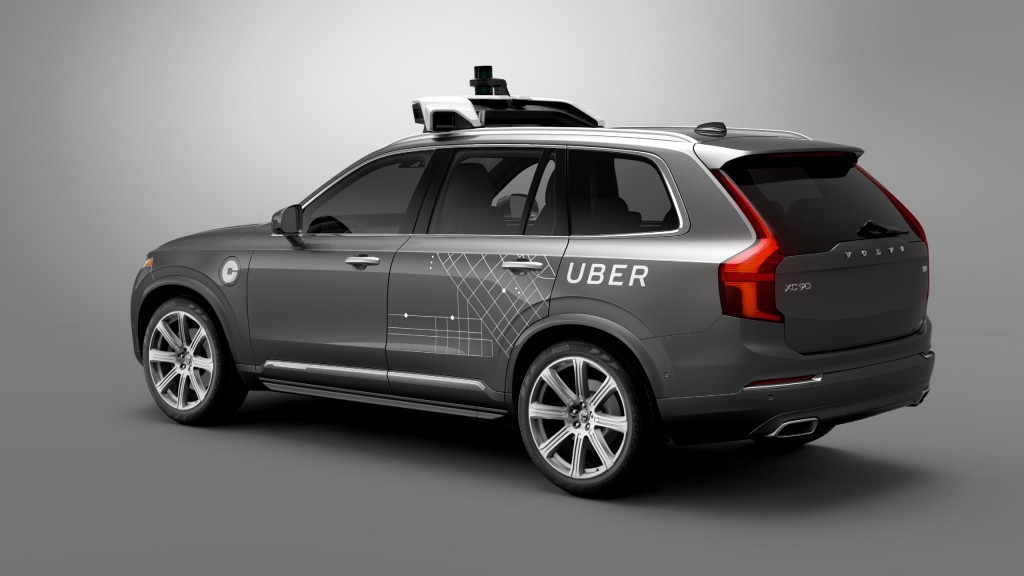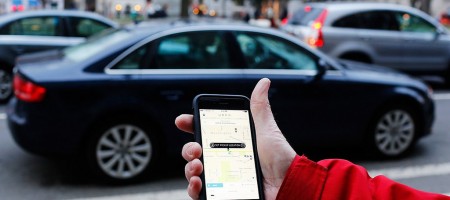Uber will be testing its self-driving cabs in real world starting this month in Pittsburgh by assigning the semi-autonomous vehicles to Uber users randomly. The fleet will consist of modified Volvo XC90 SUVs. Each car will be supervised by a human in the driver’s seat ready to take control when required and a co-drive taking notes. Uber hasn’t revealed how many of these cars will be running around.

Volvo Cars and Uber join forces to develop autonomous driving cars
Uber is joining forces with the right teams to maximise the outcome of its efforts towards a driverless future. The company announced yesterday that it will be working with Volvo to develop autonomous vehicles. The two companies will be investing a combined of USD 300 million towards this project. The primary objective of the push towards a driverless future is to make roads safer. Volvo has always been known to make some of the safest vehicles on the road today with the help of various active and passive safety features. The base vehicles will be manufactured by Volvo Cars and then purchased for use by Uber. Uber will add its own self-developed autonomous driving systems to the vehicle and Volvo will use the same base vehicle for its own autonomous car strategy. It is a win-win situation for both the companies. Uber will need decades to come anywhere close to what Volvo is capable of right now when it comes to making cars. On the other side, Uber is very strong when it comes to technology and has the right kind of talent to help Volvo eliminate the role of driver. Uber also has the intelligence that comes from its fleet doing combined 1.2 billion miles per month.
Travis Kalanick, Uber’s chief executive, said: “Over one million people die in car accidents every year. These are tragedies that self-driving technology can help solve, but we can’t do this alone. That’s why our partnership with a great manufacturer like Volvo is so important. Volvo is a leader in vehicle development and best-in-class when it comes to safety. By combining the capabilities of Uber and Volvo we will get to the future faster, together.”
Along with this, Uber also announced the acquisition of Otto, a startup that has been working on technologies to make trucks autonomous. With this acquisition, Anthony Levandowski, co-founder of Otto will lead their combined self-driving efforts across personal transport, delivery and long distance trucking in San Francisco, Palo Alto and Pittsburgh.
Lyft has also been quick to make moves in this space with GM. While everyone is talking about the possibilities for brands like Uber with autonomous vehicles, they could also pose a threat to the entire business of Uber. He even highlighted this in a recent interview with Business Insider. Autonomy will increase vehicle productivity and it won’t be long before we see many new businesses being built around it. Right now Uber has got its fleet of drivers and the advanced systems that work behind the scenes to get you a ride but if any brand is able to achieve affordable automation before Uber, Uber will have a major threat to deal with.
Kalanick highlighted the same in his interview and quoted, “If we are not tied for first, then the person who is in first, or the enemy that’s in first, then rolls out a ride-sharing network that is far cheaper or far higher quality than Uber’s, then Uber is no longer a thing.”
Is the aggressive push by Uber towards a driverless future justified? We think so. From how things appear right now, it is a situation where the winner takes all and nobody has the timelines. The future of ground transportation is certainly very interesting.




















Pingback: Uber has just been beaten by NuTonomy in the race to launch self-driving cabs - TravHQ()
Pingback: General Motors makes another move in the technology space, this time in China - TravHQ()
Pingback: The back story of Waymo-Uber lawsuit is twisted to say the least - TravHQ()
Pingback: Waymo drops multiple patent claims in fight against Uber - TravHQ()